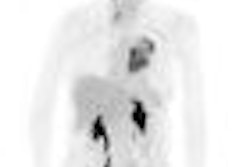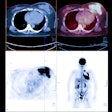TORONTO - A new study shows that the use of PET scans may improve the accuracy of dementia diagnoses early in disease onset for more than one out of four patients.
Preliminary results clearly indicate that molecular imaging technologies, such as PET scans, can help diagnose a patient's specific type of dementia. This capability is critical for providing the best possible care.
Lead study author Dr. Kirk Frey from the division of nuclear medicine at University of Michigan Hospitals presented the findings Sunday at the SNM annual meeting.
Early, accurate diagnosis of dementia is critical for providing the best available courses of treatment and therapies in the beginning stages of disease, when treatments can be most effective, Frey noted. PET scans enable physicians to identify the neurological conditions underlying each patient's mental decline and choose appropriate courses of treatment.
Routine clinical assessments do not accurately identify the root causes of dementia in the early stages, he added. Additionally, PET's ability to pinpoint neurological causes of different forms of dementia could lead to new, more targeted drugs and therapies.
Related Reading
MRI, PiB-PET may help distinguish dementias, May 4, 2009
Brain scans spot changes linked to Alzheimer's, March 17, 2009
MRI shows brain atrophy to predict Alzheimer's, February 11, 2009
UCLA study finds PET with FDDNP radiotracer can predict Alzheimer's, January 13, 2009
PET, PiB support cognitive reserve hypothesis in Alzheimer's, November 14, 2008
Copyright © 2009 AuntMinnie.com




















